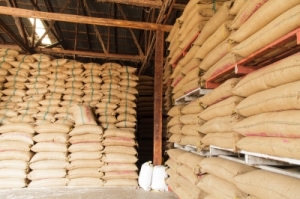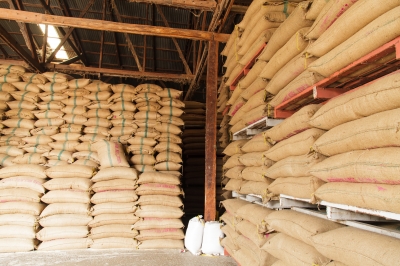 The Bureau of Customs (BOC) has filed smuggling-related complaints against the owner of Medaglia De Oro Trading and 11 licensed customs brokers for importing rice without the required import permit from the National Food Authority (NFA).
The Bureau of Customs (BOC) has filed smuggling-related complaints against the owner of Medaglia De Oro Trading and 11 licensed customs brokers for importing rice without the required import permit from the National Food Authority (NFA).
BOC said the move is part of the agency’s drive to thwart the illegal entry of imported rice into the country. Several smuggling-related charges against importers and customs brokers have been filed by the agency for the year filed.
Four separate complaints were filed by BOC acting district collectors Mario Mendoza of the Port of Manila; Roberto Almadin of the Port of Cebu; Ricardo Butalid, Jr. of the Port of Davao; and Datu Samson Pacasum of the Mindanao Container Terminal in Misamis Oriental against Emmanuel Santos, owner and proprietor of Medaglia De Oro.
Charged with Santos were the firm’s customs brokers Denise Kathryn Rosaroso, Raquel Sildora Cabasag, Emilio Chio, Myrene Noynay Sollano, Gemma Garcia, Melvin Isagan, John Kevin Cisneros, Eduardo Borje III, and Kenneth Quial.
The fifth case was filed by BOC acting district collector Elmir Dela Cruz of the Manila International Container Port against Santos and customs brokers Rosemarie Sangalang Arciaga and Baltazar Ramirez.
The charges stemmed from the rice importations of Medaglia De Oro totaling over 16.039 metric tons from Thailand and Singapore in July and August 2013 through Manila, Cebu, Davao, and Misamis Oriental. The rice imports had a total dutiable value of more than P205 million and estimated market value of over P641 million.
The 12 face multiple counts of violating Section 3601 of the Tariff and Customs Code of the Philippines (TCCP) and Section 29 of Presidential Decree (PD) Number 4, as amended by P.D. No. 1485.
Each count of violating Section 3601 of the TCCP carries a maximum punishment of 10 years’ imprisonment and a fine of P50,000, while violation of P.D. No. 4 is levied a maximum penalty of four years’ imprisonment and a fine of P8,000 per count.
Medaglia De Oro earlier told the NFA that private importers could import rice without permit, since quantitative restrictions on rice imports for the Philippines under the World Trade Organization (WTO) already expired in 2012. However, Philippine laws state that only the NFA can import rice and that companies that wish to do the same must secure an import permit from the NFA.
The NFA regulates rice imports through quotas to prevent the entry of excessive and unquantifiable amounts of rice, and ensure fair competition and the viability of the local rice industry.
Based on records from NFA, Medaglia De Oro neither applied nor was granted any import permit or allocated import quota.
“Rice is a regulated commodity not only because it is our staple food but also (because it is) a source of livelihood for 2.4-million farming households,” Customs Commissioner John Phillip Sevilla said.
He added: “Any sudden surges in imported rice would have catastrophic consequences on millions of farmers and our agriculture industry. It is for these reasons (that) the Philippine government has been requesting for special treatment of rice imports under the WTO for the past several years.”
In 2013, the Department of Agriculture reported rice sufficiency levels of 96%, equivalent to 18.44 million metric tons, for the country.
Image courtesy of Naypong at FreeDigitalPhotos.net





